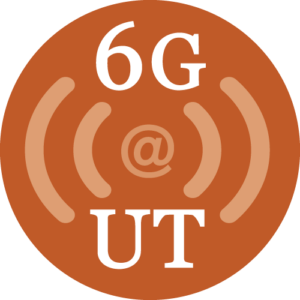December 2022: The Radionavigation Laboratory in April of 2022 “for the first time in the wild, [we] had a recording of a full-blown spoofing signal,” as a result of an experimental receiver deployed on the ISS “trained on a location in the eastern Mediterranean. […] Currently, Spire Global and HawkEye360 are using the proof in developing platforms capable of detecting and geolocating terrestrial GPS interference. Other organizations have shown interest as well.” Using a constellation, like that of Spire with over 100 in orbit, would leave “no place to hide” according to the RNL’s Dr. Humphreys. The full story is covered here by Kratos Defense.
Starlink as a backup to GPS
November 2022: As Starlink’s use in the Ukraine military efforts is becoming more and more known, the question of how many other ways Starlink could be used is raised. As Politico claims, “It’s no secret that Ukraine’s military relies heavily on the SpaceX service for a number of critical functions in its fight against Russian troops, including voice and electronic communications, helping fly drones and even correcting artillery fire.” The RNL’s Dr. Todd Humphreys has indicated that the Defense Department leaders have an “increased interest” in the “additional value” Starlink could offer compared to their current costly GPS phased-array antenna setup that aims to reduce its susceptibility to jamming. The idea has even gotten attention from Elon Musk himself who tweeted out that Starlink could “obviously offer far more robust positioning than GPS, as it will have ~1000X more satellites over time,” in response to the under-review paper written by Dr. Humphreys. Story here.

Starlink signal structure and Synchronization Sequences revealed
October 2022: The Radionavigation Laboratory has released a paper revealing the Starlink signal structure and synchronization sequences. For an article about the paper’s release you can navigate to the MIT Technology Review. Other news organizations have also written articles about the paper, such as here and here. For access to the paper, you can either look it up in our Publications page, or on arxiv.

Ericsson and UT Austin extend research partnership
October 2022: “XR technology is expected to drive a paradigm shift for how users interact between the cyber and physical worlds as the first large-scale 6G deployments occur around 2030, becoming a major facilitator of both completely virtual metaverses and the embedment of a virtual layer within the physical sphere.
The research project is headed by a cross-discipline team of three world-leading UT Austin professors in collaboration with Ericsson’s own researchers in the area. The research focuses on the challenge of ensuring bounded latency while simultaneously maximizing spectral efficiency and capacity both indoors and outdoors as well as achieving perceptually optimized streaming to XR devices.
Magnus Frodigh, Head of Research, Ericsson, says: ‘This is a big investment from Ericsson in what we believe will be a future paradigm shift, with innovators we believe can help us lead this change. We are always eager to collaborate with the very best researchers. Jeff Andrews, Alan Bovik and Todd Humphreys are world-leading professors in their areas, and we consider the UT team to be at the forefront, perfectly positioned to place focus on the most relevant research.'” For more details, visit Ericsson’s website.

Starlink unlikely to help the current situation in Iran
September 2022: Another situation arises where a large population of people have restricted or cut off internet access. Earlier this year, when Ukrainians were in dire need of internet access, Elon Musk’s Starlink stepped in and impactfully improved the situation. It seems unlikely the same can be said about the current situation in Iran. Regardless of Musk’s public announcement of “Activating Starlink …” over Iran, many are skeptical that Starlink will make an impact, at least in the short run. The RNL’s Dr. Todd Humphreys is quoted saying that Starlink is not a practical solution here due to the lack of Starlink user terminals in the country, and the unlikeliness of someone creating a DIY user terminal due to the complexity and structure of the signal. Beyond just that, there are many regulatory hurdles as well as the fact that the user terminals transmit back the the satellites, and this any users could be located by the Iranian government. Additionally, the lack of ground stations within Iran itself would introduce a reduced speed. The full story is covered here by The Intercept.

RNL Member Hailey Nichols selected by Aviation Week as one of their 20 Twenties of 2022
July 2022: “Aviation Week Network honors 20 students in their Twenties each year currently enrolled in a bachelor’s or master’s degree program in Science, Technology, Engineering or Math (STEM). The 20 Twenties program was established by Aviation Week Network in 2013 to recognize talented individuals who are on course to change the face of the aerospace and defense industry. Criteria is based on academic performance, public/community involvement and how they communicate the value of your individual research/design project.” Congratulations Hailey!
For more details visit this article.


Starlink’s help in Ukraine during wartime
June 2022: Starlink’s terminals have been playing an active role in keeping Ukraine’s communication networks running. They are used to “coordinate artillery fire and operate drones” in addition to providing the people, and even the Ukrainian President himself, internet access from remote and cut-off areas in the country. According to the Ukrainian government, there are reports of up to 10 Km of cables used for communication having been destroyed in specific areas. With over 14,000 Starlink terminals, Ukraine has managed to keep its communication network running. According to the RNL’s Dr. Humphreys, Russia has “demonstrated a keen interest in disrupting communication lines” as is clear from their initial cyber attacks on ViaSat terminals in Ukraine and other parts of Europe. Dr. Humphreys further stated that the apparent capability of Russia locating active Starlink terminals is much below what was anticipated. Having an active communication network for civilians has also proven vital since the people in Ukraine can get critical information promptly and counteract Russian propaganda about their actions in Ukraine. The full story is covered here by Voice of America.

SpaceX satellites are changing the war on the ground in Ukraine
June 2022: SpaceX’s Starlink has been playing a significant role in keeping Ukraine connected both internally among themselves as well as with the outside world. Accounts of Starlink being used on the front lines range from communication about “last-minute orders”, keeping informed on the national news and even entertainment. It is safe to say that this communication network has thwarted Russian efforts to damage the communication networks within Ukraine since the more than 11,000 Starlink stations there are in use by every day people all the way up to the President of the country for communication with his people as well as foreign leaders. The impact Starlink has had on the situation in Ukraine has showcased that LEO satellites in a constellation make it increasingly difficult to take down. That paired with the adaptability of pushing up new changes to the satellite’s code make cyberattacks less crippling to the communication system. The full Politico article can be accessed here.

RNL Member Hailey Nichols Wins Malcolm Milburn Endowed Scholarship and Award in Entrepreneurial Studies
March 2022: RNL graduate student Hailey Nichols wins the Malcolm Milburn Endowed Scholarship and Award in Entrepreneurial Studies. She is the 2022 recipient of the award for the Cockrell School of Engineering for her work on her start-up spinning out of the RNL, Locus Lock.

Commercial Satellites playing an ever increasing role in conflicts
March 2022: Commercial Satellites are able to provide data that can be a major factor in decisions made during conflicts. As seen in the current conflict in Ukraine, commercial satellite companies like Capella are able to provide radar images, while other companies such as Starlink can provide backup internet service. Whatever the service these satellites provide, the companies’ involvement can influence the decisions made by those in power. Dr. Jeffrey Lewis from the Middlebury Institute of International Studies, for example, was able to see Russian troops on the move hours before the first reports of explosions were on the news due to his access to radar images from Capella. The value in this is clear from Ukraine’s vice prime minister Mykhailo Fedorov tweet stating “We badly need the opportunity to watch the movement of Russian troops, especially at night when our technologies are blind”. Another way these satellites influence the decision making of those in power is by becoming targets themselves, a legitimate fear as the Radionavigation Lab’s Dr. Todd Humphreys says Russia is one of the few countries to openly demonstrate its spoofing capabilities, which already cause trouble in the Mediterranean. In addition to spoofing, Russia’s recent demonstration of a missile test on one of its own satellites shows their ability to shoot satellites down. The full Wired article can be accessed here.



